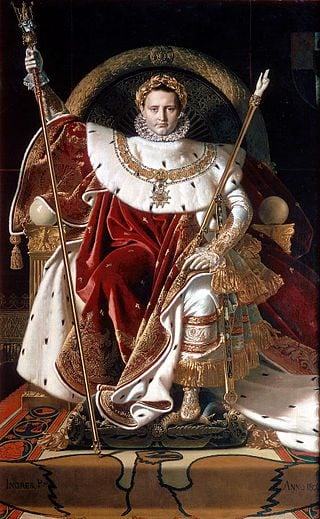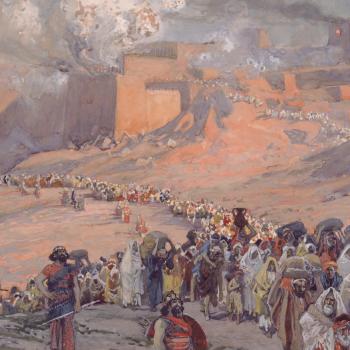
Jean Auguste Dominique Ingres
(Wikimedia Commons public domain)
A perfectly astounding passage from Paul Strathern, Napoleon in Egypt (New York: Bantam Books, 2008), regarding Bonaparte’s 1798 invasion of the former land of the pharaohs:
As the invasion fleet sailed east across the Mediterranean, Napoleon would lie in bed reading and dictating to Bourrienne. His principal reading was from the Koran. Like Alexander the Great before him, he intended to absorb the religion of the people over whom he would rule. He insisted that, if necessary, he himself was willing to become a Muslim — an intention that, at least initially, he would show every sign of wishing to fulfill. However, it should also be noted that in Napoleon’s shipboard library the Koran was shelved under “Politics.” At the same time, he also busied himself with dictating his “proclamation” to the Egyptian people:
In the name of Allah the merciful . . . People of Egypt, you will have been told that I come as an enemy of Islam. This is a lie . . . I have come to restore your rights and punish those who oppress you. . . . I worship God more than your oppressors; I respect Mohammed his prophet and the holy Koran. . . . The French are also true Moslems. The proof of this can be seen in the fact that they have marched against Rome and destroyed the throne of the Pope, who constantly incited the Christians to make war on all Moslems . . .
Prior to arrival, this proclamation would be translated into Arabic by one of the Orientalists amongst the savants and printed on the Arabic printing press which Napoleon was carrying on board L’Orient. (He had scoured Europe for an Arabic printing press; ironically, the only one he had managed to find was at the Papal Propaganda Office in Rome.) On arrival, he intended that his proclamation should be distributed amongst the Egyptians, and it was hoped that this would overcome the need for armed conflict. Such was to be the first step in the creation of his Oriental empire. As Napoleon later put it, when describing his feelings at this time: “I saw the way to achieve all my dreams. . . . I would found a religion, I saw myself marching on the way to Asia, mounted on an elephant, a turban on my head, and in my hand a new Koran that I would have composed to suit my needs. In my enterprises I would have combined the experiences of the two worlds, exploiting the realm of all history for my own profit.” (5-6)












